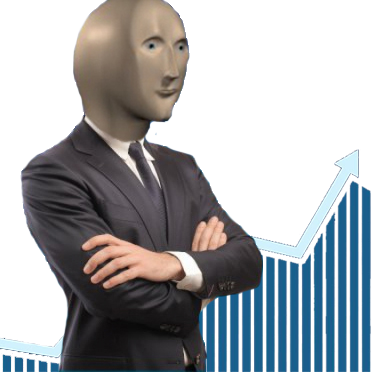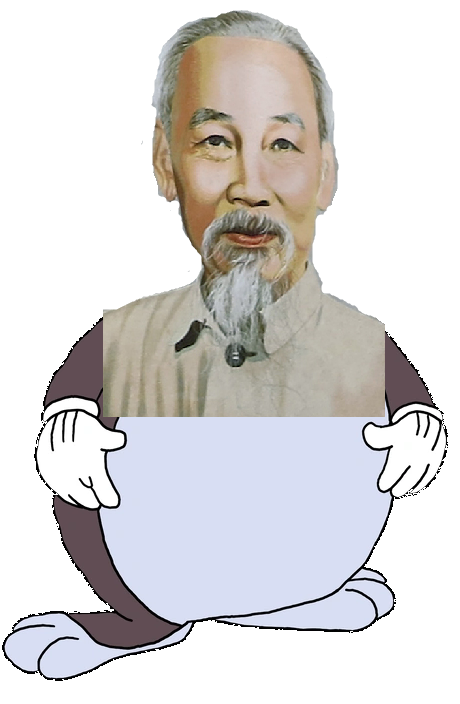Permanently Deleted
"Why doesnt this chinese guy have a surname that works in english?"
Deng Xiaoping in his own words:
Since the downfall of the Gang of Four an ideological trend has appeared that we call bourgeois liberalization. Its exponents worship the "democracy" and "freedom" of the Western capitalist countries and reject socialism. This cannot be allowed. China must modernize; it must absolutely not liberalize or take the capitalist road, as countries of the West have done. Those exponents of bourgeois liberalization who have violated state law must be dealt with severely.
Bourgeois liberalization would plunge our society into turmoil and make it impossible for us to proceed with the work of construction. To check bourgeois liberalization is therefore a matter of principle and one of vital importance for us.
By carrying out the open policy, learning foreign technologies and utilizing foreign capital, we mean to promote socialist construction, not to deviate from the socialist road. We intend to develop the productive forces, expand socialist public ownership and raise the people's income.
Without the Communist Party's leadership and without socialism, there is no future for China. This truth has been demonstrated in the past, and it will be demonstrated again in future. When we succeed in raising China's per capita GNP to US$4,000 and everyone is prosperous, that will better demonstrate the superiority of socialism over capitalism, it will point the way for three quarters of the world's population, and it will provide further proof of the correctness of Marxism. Therefore, we must confidently keep to the socialist road and uphold the Four Cardinal Principles (the Four Cardinal Principles established by Deng that are not up for debate within the CPC: upholding the socialist path, upholding the people's democratic dictatorship, upholding the leadership of the Communist Party of China, and upholding Mao Zedong Thought and Marxism–Leninism).
This time, we have to take action against those who openly oppose socialism and the Communist Party.
The struggle against the bourgeois Rightists in 1957 was carried somewhat too far, and the mistakes made should be corrected. But that doesn't mean that we have negated the necessity for this struggle as a whole.
The struggle against bourgeois liberalization is indispensable. We should not be afraid that people abroad will say we are damaging our reputation. We must take our own road and build a socialism adapted to conditions in China -- that is the only way China can have a future. We must show foreigners that China's political situation is stable. If our country were plunged into disorder and our nation reduced to a heap of loose sand, how could we ever accomplish anything? The reason the imperialists were able to bully us in the past was precisely that we were a heap of loose sand.
Mao in 1944 in a message sent to Washington via John Service, a deputy to the US Ambassador to China:
China must industrialise. This can be done … only by free enterprise and with the aid of foreign capital. Chinese and American interests are correlated and similar. They fit together, economically and politically … The United States would find us more cooperative than the Kuomintang.
Po Ku, the founder and director of Liberation Daily and a CPC Politburo member working directly under Mao's leadership, expounded to the deputy to the US Ambassador to China:
China at present is not even capitalistic. Its economy is still that of semifeudalism. We cannot advance at one jump to socialism. In fact, because we are at least two hundred years behind most of the rest of the world, we probably cannot hope to reach socialism until after most of the rest of the world has reached that state.
First we must rid ourselves of this semifeudalism. Then we must raise our economic level by a long stage of democracy and free enterprise.
What we Communists hope to do is to keep China moving smoothly and steadily toward this goal ...
It is impossible to predict how long this process will take. But we can be sure that it will be more than thirty of forty years, and probably more than a hundred years.
This makes no sense to me, a western leftist whose eyes glazed over while reading theory and missed the part where Marx predicted that socialism would arise out of capitalism.
How do you suppose to get rid of the market economy overnight in leftcom land? How does that work, step by step?
China’s economy has to be a certain size before they can push the full communism button, comrade. Have patience.
Yeah they should have stuck with a centrally planned economy and have very little trade with the rest of the world that would have for sure turned out amazing actually.
So basically there was this guy called Deng Xiaoping and he asked "hey what if socialism was when capitalism" and that's why China today is this bizarre socialist/capitalist hybrid that it is today
it's funny because you know the China-hating types here would be ranting about China's high poverty rate if they never abandoned the command economy. You just can't win
You know there are alternatives other than USSR style state capitalism or Chinese style market capitalism
Oof. That seems a bit uninformed or reductive. Obviously whether or not deng's (and the CPC, he's not alone on this) strategy worked or not is still debated, and it's still a very precarious position that china is in. But he didn't really "turn away" from mao zedong thought, in fact he specifically insisted to NOT do what russia did and keep mao zedong thought as a core guiding rule even thought they had a lot of good criticism applied to it at the time. Kind of a huge complicated topic that i'm learning a lot about as well, but this video is a very good (although obviously biased but that doesn't matter, the info in it is still well sourced and explained) overall analysis of deng's strategy and its context : https://www.youtube.com/watch?v=-NZxb9cetw0
With all due respect, if you're not willing to engage with my source and are dismissing it in a petty way, I'm not going to engage with yours. I don't even know if I'd technically call bayarea "breadtube" considering most of breadtube thinks he's a tankie. That's fine tho, agree to disagree and all that, no joke.
if you’re not willing to engage with my source and are dismissing it in a petty way
I tend to agree with you but there are people that loathe video content. I know I'm one. When that happens I ask kindly if there's a transcript, mind you, I don't just say "I won't watch a youtube video".
Oh that's fair, I more disliked the way it was said immediately followed by "read a whole book" as if that's something I automatically have the energy and time to do. It feels like a cheap "i'm correct and you're wrong", a sort-of reverse "source?" with no attempt at dialogue. Maybe i'm wrong, tone is hard in text, but that rubbed me the wrong way when I try very hard to talk like there's another human being on the other side.
"Deng Xiaoping was a Chinese politician who was the paramount leader of the People's Republic of China from 1978 until his resignation in November 1989. After Chairman Mao Zedong's death in 1976, Deng gradually rose to power and led China through a series of far-reaching market-economy reforms, which earned him the reputation as the "Architect of Modern China".




